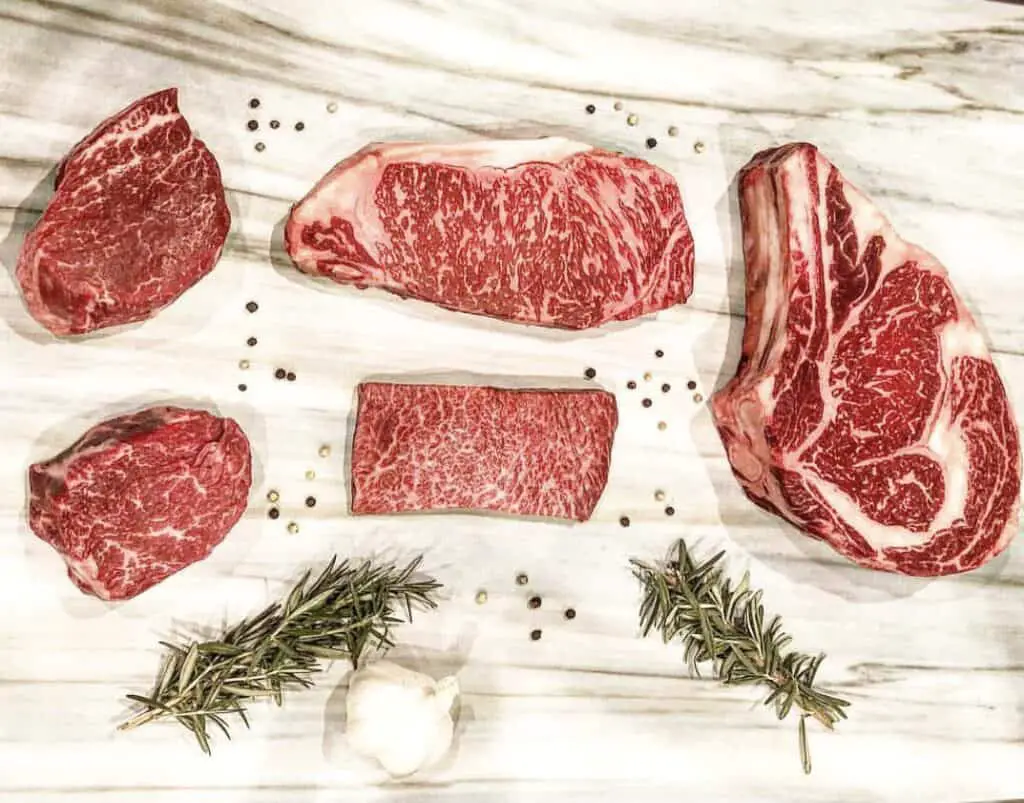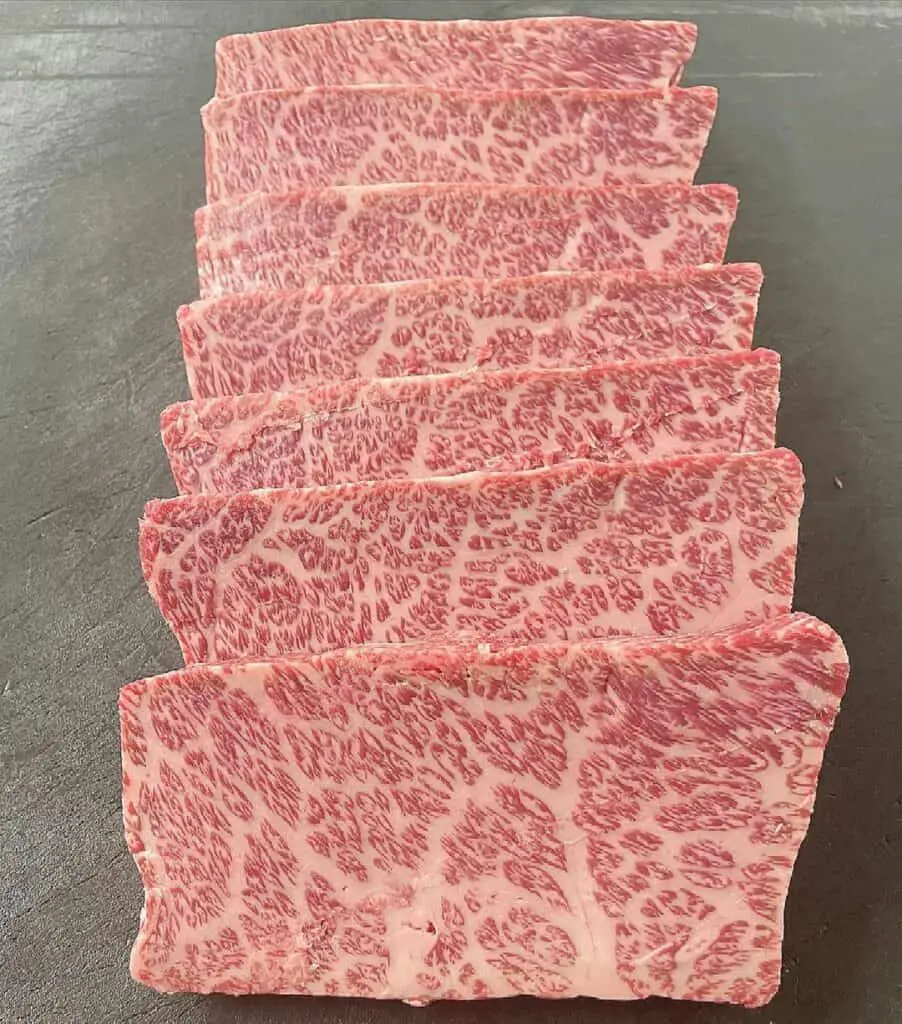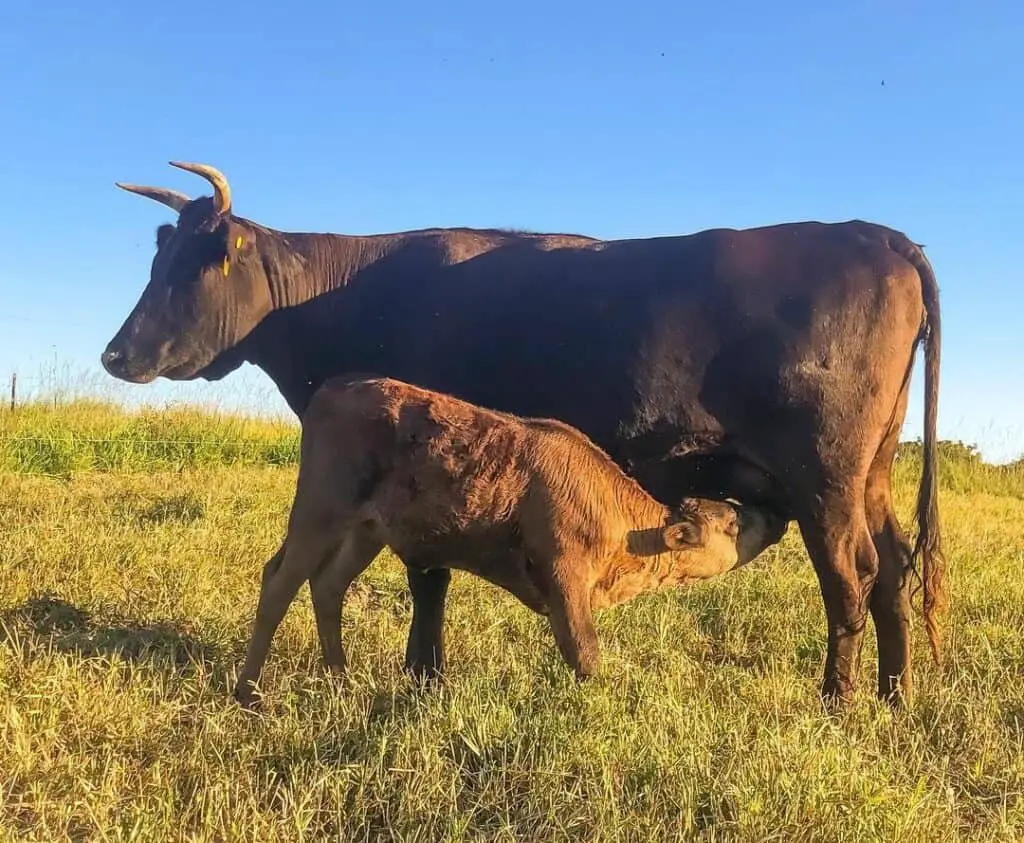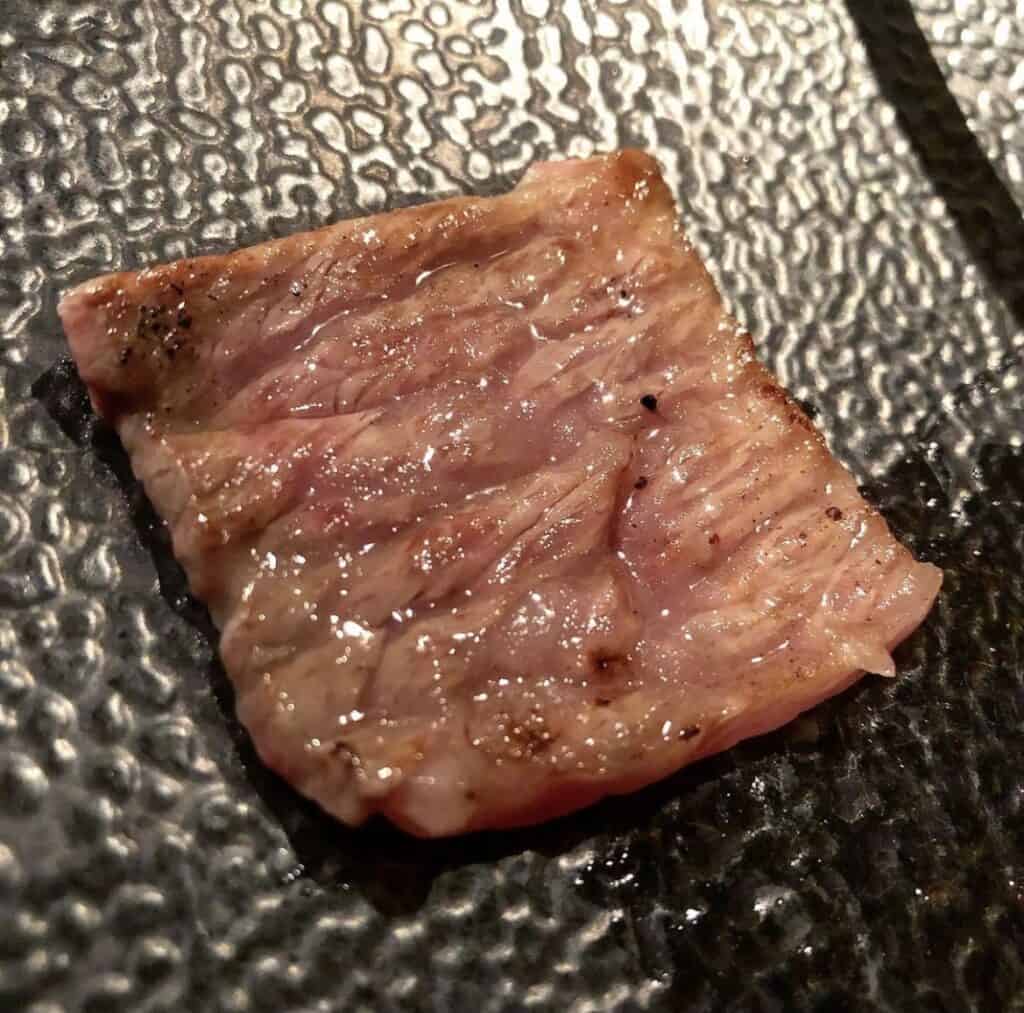Would you pay $100 for a steak? How about $500? What if I told you that it was the most tender, marbled and flavorful beef in the world.
Wagyu beef is famous because of its intense flavor and buttery texture. But what makes this meat so special to warrant such a high price tag?
Why is wagyu beef so expensive? Wagyu beef is expensive because it is prized for its high quality and intense flavor. Wagyu cattle are bred in Japan and carefully fed a special diet that helps to produce the unique marbling of fat that web offset by lean muscle tissue. This labor-intensive process results in a more tender, flavorful, and significantly more expensive product.


In Japan there are many different breeds of wagyu cows but all must be raised by hand on small family farms with strict guidelines for raising them humanely before they reach full maturity.
Why Wagyu Beef Is Expensive
The truth is that Wagyu beef is an expensive meat to purchase. It’s so expensive, in fact, that many people wonder why it costs so much in the first place. There are a number of reasons contributing to this high price tag.
For one thing, Wagyu beef cattle have special genetic qualities which make them more desirable than other cattle breeds.
These livestock were originally bred for their delicious taste and luxurious fat content- two factors which contribute to the high price of Wagyu beef today.

Here are some reasons why Wagyu beef is so expensive:
- Wagyu cows are bred to produce the highest quality meat possible.
- The cows are massaged, fed beer and sake, and given daily baths in mineral water from hot springs to help them relax.
- Wagyu cattle are raised on small family farms with a focus on natural feeding practices instead of caged feedlots.
- It takes about 3 years before a calf can be slaughtered for consumption due to its high-quality diet and careful upbringing, making this type of meat very expensive when compared to cheaper types of beef.
- Wagyu Cows are often given beer or sake to help encourage their appetite and increase production, which can be more costly than grain feed.
- This style of animal husbandry is time consuming and labor intensive: each cow may take up to three years to reach slaughter weight of about 400 pounds on average.
- The basic laws of supply and demand explain this very simply; with only around 5,000 livestock available, the cost is going to be significant.

Another factor in the cost of Wagyu is how they’re raised. As mentioned, they need to be raised in tranquil environments.
While Japan is rich with farmland, it’s not always easy to find a really quiet area to breed Wagyu, and if one does, it’s not cheap to maintain it.
Tariffs
We know Wagyu isn’t cheap, and the reasons for the high cost are myriad.
But that’s not the only factor. High tariffs are an issue, but the scarcity of Wagyu also contributes to its high cost.
Part of the reason authentic Wagyu is so expensive is, well, America’s fault. After all, the country is responsible for setting those high tariffs on Japanese beef, and those tariffs often hurt American farmers.
So American consumers are driven away by the high cost almost intentionally, so the money they spend can go to the farming industry.
But whatever the cost, it’s agreed upon in the culinary world that it entirely lives up to every ounce of praise heaped upon it year upon year.
There are few experiences in the beef community that can easily be compared to the taste of Wagyu. It’s doubtful that you’re going to find a more succulent, juicy cut of beef in the world, and if you can afford it, you’re missing out on a one-of-a-kind experience.

As things are now, there’s no sign that the market will change, nor will the tariffs be lowered, nor will the cost of raising Wagyu properly.
It’s an expense, but you can clearly see why it might be one worth budgeting for.
Finally
If you’re willing to spend $100 on a steak, what’s another $500?
Wagyu beef is famous because of its intense flavor and buttery texture. But what makes this meat so special to warrant such a high price tag?
It turns out that the reason wagyu beef is so expensive has less to do with how it tastes than where it comes from – Japan.
The cattle are raised in small herds, fed beer yeast rice gruel which gives them an extra boost of protein and more fat content as well as being allowed time to roam free for up to two years before slaughtering (compared with nine months for commercial cattle).
This long life cycle also means that these cows produce much higher quality meat.